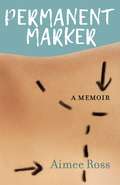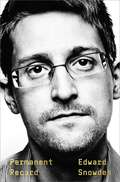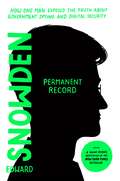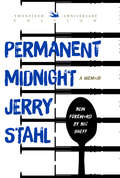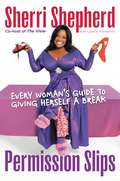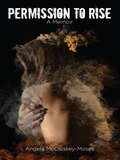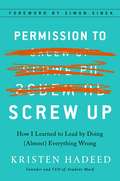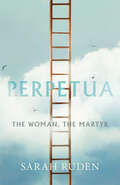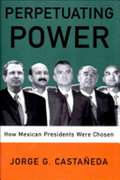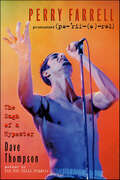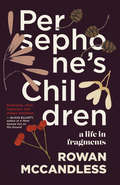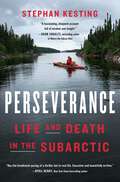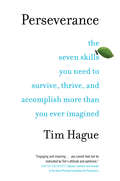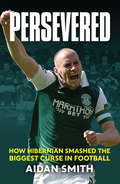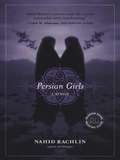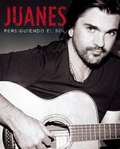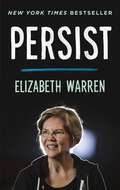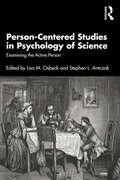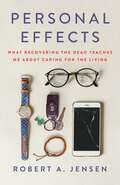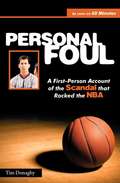- Table View
- List View
Permanent Marker: A Memoir
by Aimee Ross“Aimee’s story reminds us that even when our truths don’t reveal themselves in the ways we wish they would, we can always choose how those truths shape, rather than define, our lives.”-Darin Strauss, author of Half a Life“Aimee Ross possesses an indomitable spirit and fierce humor that breathe new life into every page.”-Jill Christman, author of Darkroom and Borrowed Babies: Apprenticing for MotherhoodAimee Ross was living a perfectly normal life raising three kids, married to her high school sweetheart, and teaching at her high school alma mater. Life was perfect—right until it wasn’t.Unhappy in her marriage, Aimee asked for a divorce. Three days later, she suffered a heart attack at age forty-one. Five months after that, she survived a near-fatal car crash caused by an intoxicated driver. Her physical recovery took months and left her body marked by scars. The emotional recovery, though, would take longer, as Aimee sought to forgive the man who almost killed her—and to forgive herself for tearing apart her family.Aimee Ross writes with candor, wit, and humor as she finds the power in her story and chronicles her transformation into the woman she was always meant to be.Permanent Marker takes readers on a journey of healing, proving that from darkness can come new light, new love, and a renewed purpose for life.“A remarkable story of healing, courage, and finding the strength it takes to rewrite your life’s story.”-Tina Neidlein, humor writer and author of The Girl’s Guide and It’s a Mom Thing
Permanent Record
by Edward SnowdenIn 2013, twenty-nine-year-old Edward Snowden shocked the world when he broke with the American intelligence establishment and revealed that the United States government was secretly pursuing the means to collect every single phone call, text message, and email. The result would be an unprecedented system of mass surveillance with the ability to pry into the private lives of every person on earth. Six years later, Snowden reveals for the very first time how he helped to build this system and why he was moved to expose it. Spanning the bucolic Beltway suburbs of his childhood and the clandestine CIA and NSA postings of his adulthood, Permanent Record is the extraordinary account of a bright young man who grew up online--a man who became a spy, a whistleblower, and, in exile, the Internet's conscience. Written with wit, grace, passion, and unflinching candor, Permanent Record is a crucial memoir of our digital age and destined to be a classic.
Permanent Record (Young Readers Edition): How One Man Exposed the Truth about Government Spying and Digital Security
by Edward SnowdenA young reader’s adaptation of whistleblower and bestselling author Edward Snowden's memoir, Permanent Record—featuring a brand-new afterword that includes resources to learn about the basics of digital security. In 2013, Edward Snowden shocked the world when he revealed that the United States government was secretly building a system of mass surveillance with the ability to gaze into the private lives of every person on earth. Phone calls, text messages, emails—nothing was safe from prying eyes. Now the man who risked everything to expose the truth about government spying describes for a new generation how he helped build that system, what motivated him to try to bring it down, and how young people can strive to protect their privacy in the digital age.“Snowden's sprightly prose, his deep technical knowledge, his superb knack for explaining complex matters, his ability to articulate principled action all come together in a book that is, if anything, BETTER than the adult version.” —Cory Doctorow, BoingBoing
PermanentMidnight
by Jerry Stahl Nic ScheffJerry Stahl's seminal memoir of drug addiction and a career in Hollywood, Permanent Midnight is a classic along the lines of Hubert Selby, Jr. 's Last Exit to Brooklyn. Illuminating the self-loathing and self-destruction of an addict's inner life, Permanent Midnight follows Stahl through the dregs of addiction and into sobriety. In 1998, Ben Stiller, Owen Wilson, and Maria Bello starred in a film version of Permanent Midnight to much acclaim. Nic Sheff, author of Tweak, wrote the introduction to this edition.
Permission Slips: Every Woman's Guide to Giving Herself a Break
by Sherri Shepherd Laurie KilmartinCovering topics such as "It's Jesus or Jail,""Marriage, the Hard Way,""Children: The Gift You Can't Give Back," and "All the Things I Don't Know...And All the Things I Definitely Do," stand-up comedienne, actress, and ABC's The View co-host Sherri Shepherd comically chronicles her struggles to keep up with the many roles-professional, wife, mother, daughter, and friend-that women must play in today's world. Sherri urges women to pursue their most important dreams and to never give up, but also let's readers know that it's okay to give themselves "permission slips" when things don't always work out the way they want them to. As her many fans know, Sherri is never hesitant to speak from the heart, and her bubbly personality shines through in this delightful autobiography.
Permission To Rise: A memoir
by Angela McCluskey-MosesPermission to Rise takes you on a brave trip down memory lane and explains how surrendering to Divine Love changed the author’s life. Permission to Rise provides endless opportunities to cultivate greater intimacy with Angela’s mind. Her story describes self-healing, heart-listening, determination and courage to transcend inner obstacles. Each page overspills with compassion, encouragement, wisdom and persistence. I strongly recommend this remarkable journey must be read by each and every growing up woman or anyone looking to rewrite their own story.” Solmaz Bulut, MS, LPC, Family and Children Mental Health Born Angela Cordeiro da Silva, the author grew up fighting poverty and childhood traumas at a very young age in the streets of Sao Paulo, Brazil. She pushes herself through traumatic events up to and including a suicide attempt until she finally decides to rewrite her own story.
Permission to Screw Up: How I Learned to Lead by Doing (Almost) Everything Wrong
by Simon Sinek Kristen HadeedThe inspiring, unlikely, laugh-out-loud story of how one woman learned to lead–and how she ultimately succeeded, not despite her many mistakes, but because of them. This is the story of how Kristen Hadeed built Student Maid, a cleaning company where people are happy, loyal, productive, and empowered, even while they’re mopping floors and scrubbing toilets. It’s the story of how she went from being an almost comically inept leader to a sought-after CEO who teaches others how to lead. Hadeed unintentionally launched Student Maid while attending college ten years ago. Since then, Student Maid has employed hundreds of students and is widely recognized for its industry-leading retention rate and its culture of trust and accountability. But Kristen and her company were no overnight sensation. In fact, they were almost nothing at all. Along the way, Kristen got it wrong almost as often as she got it right. Giving out hugs instead of feedback, fixing errors instead of enforcing accountability, and hosting parties instead of cultivating meaningful relationships were just a few of her many mistakes. But Kristen’s willingness to admit and learn from those mistakes helped her give her people the chance to learn from their own screwups too. Permission to Screw Up dismisses the idea that leaders and organizations should try to be perfect. It encourages people of all ages to go for it and learn to lead by acting, rather than waiting or thinking. Through a brutally honest and often hilarious account of her own struggles, Kristen encourages us to embrace our failures and proves that we’ll be better leaders when we do.
Peron&Evita: Love Letters.
by Lázaro DroznesPeron&Evita: Love Letters. The extraordinary story of Maria Eva Duarte de Perón, whose intense 33-year life became a universal myth. The career of Maria Eva Duarte de Perón is one of the most extraordinary stories ever told. This work, based on apocryphal correspondence, casts light on the subjective experience of the protagonists of one of the most intense love stories Argentina has ever known. Evita's death is most likely due to her refusal to accept medical treatment of any kind. Her catchphrase was “Doctors are for people who have nothing to do, not for me. Treatment is for oligarchs, for those who don't work. Can't you see that they want to invent illnesses in order to sabotage my administration?” exemplifies what the Greeks called “hubris” -the illness of power-, the essential ingredient for any tragedy. Evita's 33-year life has become a universal myth. This dramatic work of fiction spans the following stages of Evita's incredible life: Her birth as a natural daughter in the second family of a rancher in the Province of Buenos Aires. Her trip to Buenos Aires at the age of fifteen and her lonely time in the big city. Eking out an existence as a courtesan and theater and radio actress. Birth and adoption of her daughter Marriage to Colonel Perón. The President's wife and first lady of the Nation. Her trip to Europe. Eva is transformed into Evita during her work with the Foundation. Illness, operations, lies and death. Embalmment of Evita's body. Disappearance and return of the embalmed body. Post mortem complaints about decisions made by the widower during his third administration. Buy this book for an intimate glimpse into the lives of two giants from Argentine history!
Perpetua: The Woman, the Martyr (Ancient Lives)
by Sarah RudenAn intimate and human portrait of Perpetua, a third-century woman author who was idealized as a Christian martyr On March 7, 203, in the monumental amphitheater at Carthage, Vibia Perpetua was one of five Christians who met their deaths after refusing to venerate the Roman emperor Septimius Severus and his son. Perpetua stood out from the other four, and in fact from all the other martyrs of her era and before: she was an aristocratic married woman with an infant son, and she is the first female prose author whose work survives. Offering a probing new translation of Perpetua&’s extraordinary prison diary and situating the life behind that diary within the turbulent late Roman Empire, Sarah Ruden tells the story of Perpetua&’s remarkable feat of self‑invention as a martyr. As she builds on Perpetua&’s own words and integrates them into their religious and historical contexts, Ruden shines a light on Perpetua&’s disarming candidness, her brashness, and her naïvété. In contrast to traditional portrayals of the saint as a brave but submissive young woman, Ruden&’s narrative reveals a complex individual who flaunts a vivid public persona as a martyr while at the same time navigating the emotions of a mother, daughter, sister, and friend approaching death.
Perpetuating Power: How Mexican Presidents Were Chosen
by Jorge G. Castaneda Padraic Arthur SmithiesA remarkably candid account of Mexican presidential politics, "destined to become the most important political book of the decade" (Foreign Policy). In Perpetuating Power, Jorge Castaneda lays bare the often mystifying workings of power in Mexico, offering readers a guided tour through the maze that leads to the Mexican presidential palace. Since the 1920s, Mexico has conducted presidential elections every six years, electing each time the handpicked successor to the sitting president. To outside observers, especially Americans accustomed to a fractious and relatively unpredictable political process, what stands out about the Mexican system is its odd mixture of democratic pretensions and inevitability: there are always elections, but everyone knows the next president will be the candidate of the appropriately named Party of the Institutional Revolution, which has governed Mexico throughout most of the last century and remains in power today. In six penetrating essays combined with interviews with each of the living Mexican ex-presidents, Castaneda provides a remarkably candid account of the political machinery of Mexican presidential politics--and a view, startling to political outsiders, of how power really operates.
Perry Farrell: The Saga of a Hypester
by Dave ThompsonDave Thompson's biography of Perry Farrell traces the performer's life from his childhood in Flushing, Queens to becoming front man for the band Jane's Addiction to his founding of the touring festival, Lollapalooza. Perry Farrell: The Saga of a Hypester sheds light on a man who remains a mystery to all but a few.
Persephone's Children: A Life in Fragments
by Rowan McCandlessAfter years of secrecy and silence, Rowan McCandless leaves an abusive relationship and rediscovers her voice and identity through writing.She was never to lie to him. She was never to leave him; and she was never supposed to tell.Persephone’s Children chronicles Rowan McCandless’s odyssey as a Black, biracial woman escaping the stranglehold of a long-term abusive relationship. Through a series of thematically linked and structurally inventive essays, McCandless explores the fraught and fragmented relationship between memory and trauma. Multiple mythologies emerge to bind legacy and loss, motherhood and daughterhood, racism and intergenerational trauma, mental illness and resiliency.It is only in the aftermath that she can begin to see the patterns in her history, hear the echoes of oppression passed down from unknown, unnamed ancestors, and discover her worth and right to exist in the world.A RARE MACHINES BOOK
Perseverance: Life and Death in the Subarctic
by Stephan KestingAn adventurer, firefighter, and jiu-jitsu practitioner embarks on a journey of a lifetime—a 1,000 mile voyage through the Canadian sub-arctic—after recovering from a life-threatening illness.The Canadian North is a vast and lonely land where bears roam free, fires rage unchecked, and storms blast every living thing on the tundra. When Stephan Kesting, already no stranger to pushing his own physical limits, was faced with a rare illness, he knew the only way for him to recover in both body and mind was to dig even deeper. Despite the dangers inherent in the sub-arctic, Kesting sets out on an unimaginably difficult journey. Completely alone in the wilderness for six weeks, where a single mistake could cost his life, Kesting followed in the footsteps of the native peoples and earliest explorers. In this deepest solitude and wracked with self-doubt, he found the strength to endure. Perseverance is the moving and nail-biting account of his journey from near-death to a raw embrace of adventure and life. Inspirational, vulnerable and honest, Kesting shares the lessons he learned in the wilderness that will help us hold onto hope in our darkest moments and show how we can find the strength to overcome any obstacle.
Perseverance: The Seven Skills You Need to Survive, Thrive, and Accomplish More Than You Ever Imagined
by Tim HagueAn inspiring story of beating the odds and learning to overcome--no matter what life hands you.After starting a family and flourishing in his career, Tim Hague was struck by misfortune. The irritating tremor in his foot turned out to be early onset Parkinson's disease. He was only 46 years old. But what seemed to be an end became a new beginning. Just three years later, Hague won the inaugural The Amazing Race Canada (with his son, Tim Jr., as his teammate). His remarkable life story shows that perseverance is not just a matter of willpower: it is a skill that can be learned and honed. And perseverance is the theme of his life. From the day he was born, Hague has gone from one struggle to another. Yet, remarkably, he doesn't have a trace of self-pity. In fact, he feels blessed. From his tough start in life as an unwanted mixed-race baby born in Texas in 1964, to his eventual move to the unforgiving climate of Winnipeg, Canada, to start a family under difficult circumstances, and his continuing battle with Parkinson's--Hague's life is a roadmap of perseverance. Parkinson's has forced him to retire early from the work he loves as a registered nurse. But as a healthcare professional, and now suffering from a challenging disease himself, Hague discusses living with Parkinson's like no one else could. He now works with charities to help promote Parkinson's awareness and his "Live Your Best" message. Drawing on his experience winning The Amazing Race, and referencing cutting-edge research and studies, Hague weaves a moving story of failure and success, outlining the elements of his philosophy that anyone can apply to their own lives, including: * The nature of luck: Luck comes to those who keep trying until the end--never stop until the race is over. * Find community: As a nurse, a husband and father, and a man living with Parkinson's, Hague knows better than most that we all need to ask for help sometimes, and that's a good thing. * Accept limits: By focusing on what we can do, we accomplish more than we ever thought possible. * Cease striving: We think of striving as a positive attribute, but all we end up doing is banging our heads against the wall. Have goals, but have fun. Do not create anxiety out of nothing and maintain perspective. * Live Your Best: No such thing as giving 110%--can only do your best. Inspirational and entertaining, Hague's message is both simple and profound: perseverance isn't just something a person has, or a trait we admire in others. Hague's book, like his life, is a guide to how we can all learn to persevere in the face of daily struggles--or even life-changing illness.
Persevered: How Hibernian Smashed the Biggest Curse in Football
by Aidan SmithA &“delightfully quirky, witty and exquisitely rendered&” account of the Edinburgh football team that won the Scottish Cup—after a 114-year dry spell (Sunday Herald). One hundred and fourteen years and no Scottish Cup for Hibernian. It could be considered the biggest curse in football. Cock-up after near-miss after not-a-hope. Over the years, fans of the rival team Hearts have even tried to get the term &“Hibsing it&”—to chuck away a vital game from a favorable position—included in the dictionary. Every year would come the mention of 1902, the last time Hibs had won the cup. 1902, when Buffalo Bill was still alive and the bra was newly invented. And then came 2016 and a run all the way to the final at Hampden. Hibs couldn&’t finally, at long, long last, win the infernal, blasted thing . . . could they? Aidan Smith takes us on the turbulent journey that was Hibs&’ 2016 Scottish Cup Campaign, through a season of peaks and troughs that, despite everything, finally delivered that elusive Cup victory Hibs fans craved for so long.
Persian Girls
by Nahid RachlinFor many years, heartache prevented Nahid Rachlin from turning her sharp novelist's eye inward: to tell the story of how her own life diverged from that of her closest confidante and beloved sister, Pari. Growing up in Iran, both refused to accept traditional Muslim mores, and dreamed of careers in literature and on the stage. Their lives changed abruptly when Pari was coerced by their father into marrying a wealthy and cruel suitor. Nahid narrowly avoided a similar fate, and instead negotiated with him to pursue her studies in America. When Nahid received the unsettling and mysterious news that Pari had died after falling down a light of stairs, she traveled back to Iran-now under the Islamic regime-to find out what happened to her truest friend, confront her past, and evaluate what the future holds for the heartbroken in a tale of crushing sorrow, sisterhood, and ultimately, hope. .
Persiguiendo el sol
by Juanes"Yo, por mi lado, cumplo con hacer lo que creo que he venido a hacer al mundo: tocar y componer música buscando con ello despertar conciencias, renovar corazones y generar un cambio. Seguiré mirando las estrellas y viajando por el mundo hasta que Dios me lo permita. Ojalá pueda seguir por muchos años más conectando vidas a través del arte, tocando mi guitarra y persiguiendo el sol". --Juanes En Persiguiendo el sol el ícono humanitario y estrella internacional de la música comparte la increíble historia de su vida y de cómo la música y la fe lo han guiado en su camino. En sus propias palabras y con deslumbrantes fotografías --algunas nunca antes vistas-- Juanes habla de sus momentos más definitivos, desde su infancia hasta el presente, reflexionando acerca de su camino espiritual y musical y sobre las experiencias personales y profesionales que lo han convertido en el hombre que es hoy. Juanes nació y se crió en Colombia. De su familia heredó un gran amor por la música y aprendió a tocar la guitarra desde pequeño. A los dieciséis años se convirtió en miembro fundador, cantante, guitarrista y compositor de Ekhymosis, que llegó a ser uno de los grupos de rock más famosos de Colombia. Sin embargo, fue su carrera como solista la que lo propulsó al estrellato internacional. Con gran honestidad, Juanes cuenta cómo sus momentos de gloria estuvieron muchas veces plagados de incertidumbre e introspección, y cómo el hecho de mantenerse fiel a sus creencias y apasionado por su arte le dio la fuerza y la visión para reinventarse. Mientras que su vida como artista ha sido ampliamente documentada, el Juanes más privado jamás se ha revelado en sus propias palabras... hasta ahora.
Persist
by Elizabeth WarrenThe inspiring, influential senator and bestselling author mixes vivid personal stories with a passionate plea for political transformation.Elizabeth Warren is a beacon for everyone who believes that real change can improve the lives of all Americans. Committed, fearless, and famously persistent, she brings her best game to every battle she wages. <P><P>In Persist, Warren writes about six perspectives that have influenced her life and advocacy. She’s a mother who learned from wrenching personal experience why child care is so essential. She’s a teacher who has known since grade school the value of a good and affordable education. She’s a planner who understands that every complex problem requires a comprehensive response. She’s a fighter who discovered the hard way that nobody gives up power willingly. She’s a learner who thinks, listens, and works to fight racism in America. And she’s a woman who has proven over and over that women are just as capable as men. <P><P>Candid and compelling, Persist is both a deeply personal book and a powerful call to action. Elizabeth Warren—one of our nation’s most visionary leaders—will inspire everyone to believe that if we’re willing to fight for it, profound change is well within our reach. <P><P><b>A New York Times Best Seller</b>
Person-Centered Studies in Psychology of Science: Examining the Active Person
by Stephen L. Antczak Lisa M OsbeckThis unique collection examines "the acting person" as an important unit of analysis for science studies, using an integrative approach of in-depth case studies to explore the cognitive, social, cultural, and personal dimensions of a series of key figures in the sciences, from Goethe to Kepler to Rachel Carson. Opening up key questions about what science is, and what comprises a scientist, the volume offers an accessible introductory approach to psychology of science, a growing area in Science and Technology Studies (STS). Case studies focus on the psychological contexts of the contributions for which the scientist is known. Without diminishing its epistemic authority, science is presented as a psychologically saturated human activity, one that is especially illustrative of the way social, cognitive, and personal processes intermingle to both facilitate and impede scientific accomplishment. Each case study ends with a set of discussion questions, providing a valuable resource for student reflection and discussion, inviting analysis of similarities and differences in science in the context of very different lives and different projects. Person-Centered Studies in Psychology of Science is essential reading for scholars and graduates interested in the psychology of science, personality theory, social, or cognitive psychology, general psychologists, and theoretical psychologists.
Persona
by Hiroaki Sato Naoki InoseYukio Mishima (b. 1925) was a brilliant writer and intellectual whose relentless obsession with beauty, purity, and patriotism ended in his astonishing self-disembowelment and decapitation in downtown Tokyo in 1970. Nominated for the Nobel Prize, Mishima was the best-known novelist of his time (works like Confessions of a Mask and The Temple of the Golden Pavilion are still in print in English), and his legacy--his persona--is still honored and puzzled over. Who was Yukio Mishima really? This, the first full biography to appear in English in almost forty years, traces Mishima's trajectory from a sickly boy named Kimitake Hiraoka to a hard-bodied student of martial arts. In detail it examines his family life, the wartime years, and his emergence, then fame, as a writer and advocate for traditional values. Revealed here are all the personalities and conflicts and sometimes petty backbiting that shaped the culture of postwar literary Japan. Working entirely from primary sources and material unavailable to other biographers, author Naoki Inose and translator Hiroaki Sato together have produced a monumental work that covers much new ground in unprecedented depth. Using interviews, social and psychological analysis, and close reading of novels and essays, Persona removes the mask that Mishima so artfully created to disguise his true self. Naoki Inose, currently vice governor of Tokyo, has also written biographies of writers Kikuchi Kan and Osamu Dazai. New York-based Hiroaki Sato is an award-winning translator of classical and modern Japanese poetry, and also translated Mishima's novel Silk and Insight.
Personal Best: From Rock Bottom to the Top of the World
by Adele Roberts'Adele's inner strength is truly remarkable. Personal Best will light a fire of hope and determination in us all.' -Lorraine KellyAward-winning BBC broadcaster, TV personality and DJ, Adele Roberts, was diagnosed with bowel cancer on the first of October 2021. In the months that followed, with her partner Kate Holderness alongside her, she fought very publicly through the challenges of chemotherapy and life with a stoma, whom she named Audrey. Adele's legions of fans avidly followed this remarkable journey, struck by her determination, her stoicism, and above all the resolute positivity that she and Kate demonstrated despite the many hurdles they faced along the way. 18 months on - she ran across the finish line of the London Marathon, setting a new Guinness World Record as the fastest female with an ileostomy.Personal Best is the story of those months but it's also a tremendously valuable, life-enhancing guide to surviving and thriving through life's challenges and setbacks, illuminating a path that anyone can follow to get back on track, go further than they thought and achieve their personal best in the marathon of life - punctured with inspirational quotes and playlists along the way. Personal Best will help you to take on whatever challenge you may be facing with enough resolution to give yourself the strongest possible chance of success.
Personal Best: From Rock Bottom to the Top of the World
by Adele Roberts'Adele's inner strength is truly remarkable. Personal Best will light a fire of hope and determination in us all.' -Lorraine KellyAward-winning BBC broadcaster, TV personality and DJ, Adele Roberts, was diagnosed with bowel cancer on the first of October 2021. In the months that followed, with her partner Kate Holderness alongside her, she fought very publicly through the challenges of chemotherapy and life with a stoma, whom she named Audrey. Adele's legions of fans avidly followed this remarkable journey, struck by her determination, her stoicism, and above all the resolute positivity that she and Kate demonstrated despite the many hurdles they faced along the way. 18 months on - she ran across the finish line of the London Marathon, setting a new Guinness World Record as the fastest female with an ileostomy.Personal Best is the story of those months but it's also a tremendously valuable, life-enhancing guide to surviving and thriving through life's challenges and setbacks, illuminating a path that anyone can follow to get back on track, go further than they thought and achieve their personal best in the marathon of life - punctured with inspirational quotes and playlists along the way. Personal Best will help you to take on whatever challenge you may be facing with enough resolution to give yourself the strongest possible chance of success.
Personal Best: From Rock Bottom to the Top of the World by Adele Roberts
by Adele Roberts'Adele's inner strength is truly remarkable. Personal Best will light a fire of hope and determination in us all.' -Lorraine KellyAward-winning BBC broadcaster, TV personality and DJ, Adele Roberts, was diagnosed with bowel cancer on the first of October 2021. In the months that followed, with her partner Kate Holderness alongside her, she fought very publicly through the challenges of chemotherapy and life with a stoma, whom she named Audrey. Adele's legions of fans avidly followed this remarkable journey, struck by her determination, her stoicism, and above all the resolute positivity that she and Kate demonstrated despite the many hurdles they faced along the way. 18 months on - she ran across the finish line of the London Marathon, setting a new Guinness World Record as the fastest female with an ileostomy.Personal Best is the story of those months but it's also a tremendously valuable, life-enhancing guide to surviving and thriving through life's challenges and setbacks, illuminating a path that anyone can follow to get back on track, go further than they thought and achieve their personal best in the marathon of life - punctured with inspirational quotes and playlists along the way. Personal Best will help you to take on whatever challenge you may be facing with enough resolution to give yourself the strongest possible chance of success.
Personal Effects: What Recovering the Dead Teaches Me About Caring for the Living
by Robert A. JensenThe owner of the world’s leading disaster management company chronicles the unseen world behind the yellow tape, and explores what it means to be human after a lifetime of caring for the dead.You have seen Robert A. Jensen—you just never knew it. As the owner of the world’s largest disaster management company, he has spent most of his adult life responding to tragedy. From the Oklahoma City bombing, 9/11, and the Bali bombings, to the 2004 South Asian Tsunami, Hurricane Katrina, the 2010 Haitian Earthquake, and the Grenfell Tower Fire, Jensen has been at the practical level of international incidents, assisting with the recovery of bodies, identifying victims, and repatriating and returning their personal effects to the surviving family members. He is also, crucially, involved in the emotional recovery that comes after a disaster: helping guide the families, governments, and companies involved, telling them what to expect and managing the unmanageable. As he explains, “If journalists write the first rough draft of history, I put the punctuation on the past.”Personal Effects is an unsparing, up-close look at the difficult work Jensen does behind the yellow tape and the lessons he learned there. The chronicle of an almost impossible and grim job, Personal Effects also tells Jensen’s own story—how he came to this line of work, how he manages the chaos that is his life, and the personal toll the repeated exposure to mass death brings, in becoming what GQ called “the best at the worst job in the world.” A rare glimpse into a world we all see but many know nothing about, Personal Effects is an inspiring and heartwarming story of survival and the importance of moving forward, Jensen allows his readers to see over his shoulder as he responds to disaster sites, uncovers the deceased, and cares for families to show how a strong will and desire to do good can become a path through the worst the world can throw at us.
Personal Foul
by Tim Donaghy Phil ScalaThe media has often speculated and sports fans have debated, but until now no one has known the real story. Personal Foul takes an in-depth look at former NBA referee Tim Donaghy and the betting scandal that rocked professional basketball. This is the decisive book that reveals exactly what was done and how it all happened. Which games were affected and how? Did referees target particular players or teams? Just how much did the NBA know and when? How did the mafia get involved? The book answers all of these questions and more. Thrilling and poignant, Personal Foul takes readers on the journey of one man wrestling his own demons and shines a light on a culture of gambling and "directive" officiating in the NBA that promises to change the way sports fans view the game forever. The book also includes a foreword by Phil Scala, the FBI Special Agent who worked the Gambino case.
